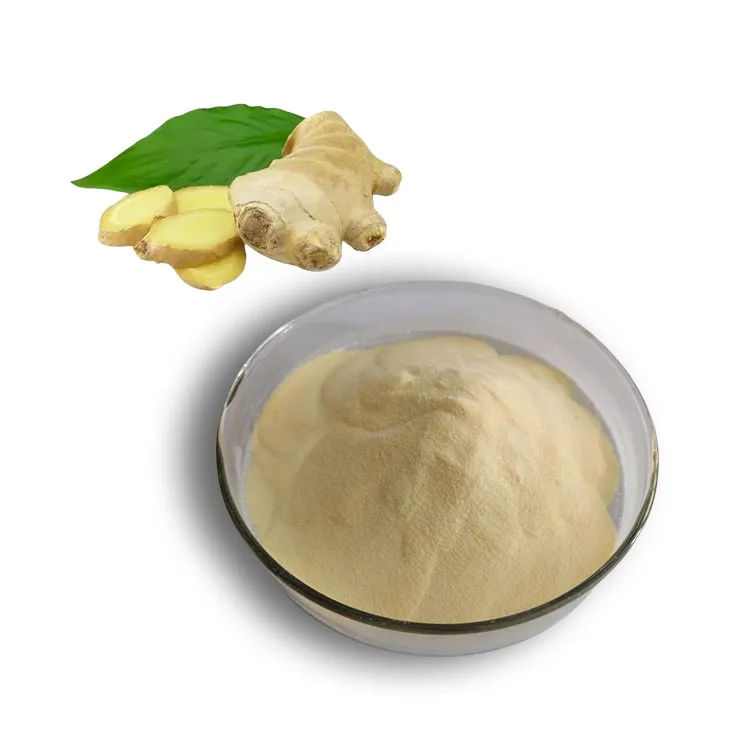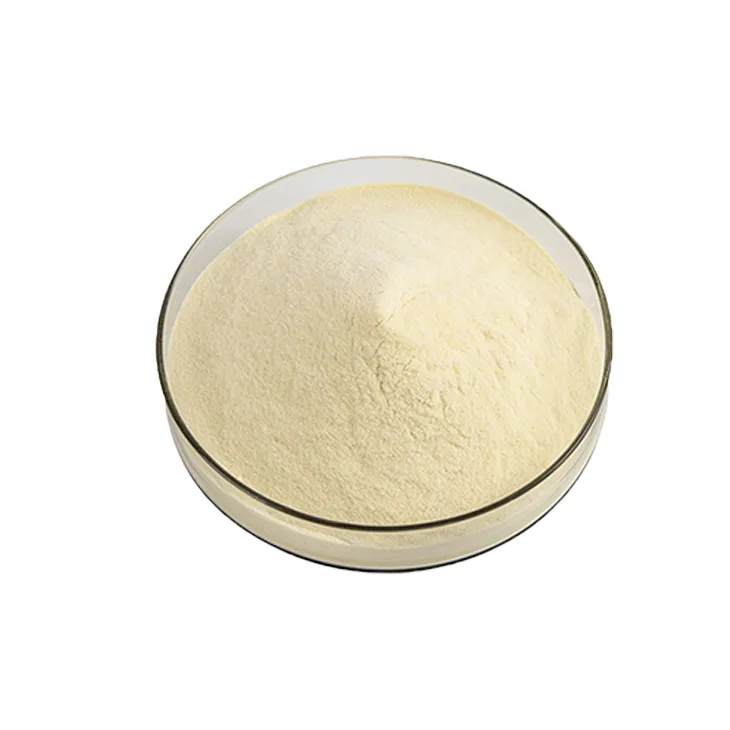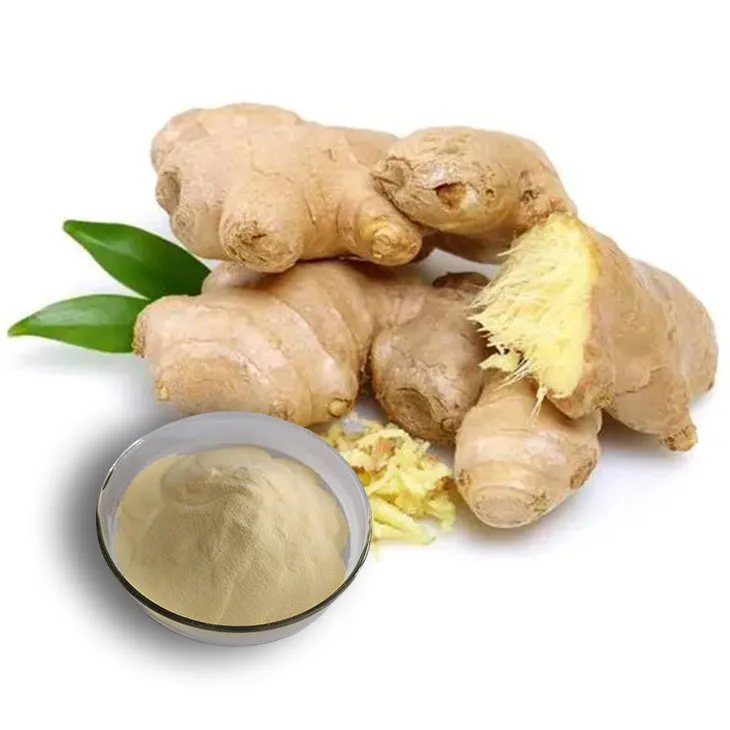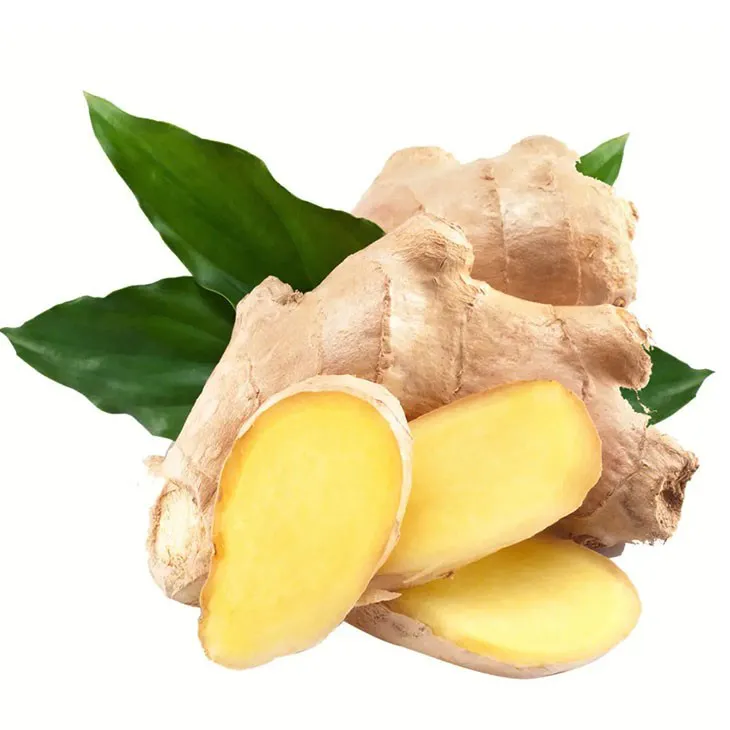- 0086-571-85302990
- sales@greenskybio.com
Use ginger extract to prevent diseases and enhance immunity.
2024-11-13

1. Introduction
Ginger has been a staple in traditional medicine for centuries across various cultures. Ginger Extract, in particular, has emerged as a promising natural remedy with a wide range of health benefits. It is not only known for its distinct flavor but also for its potential in preventing diseases and enhancing the immune system. This article will delve deep into the multiple mechanisms through which Ginger Extract exerts its beneficial effects, from its anti - inflammatory properties to antioxidant effects, as well as its historical significance and modern - day applications for a healthier life.

2. Historical Significance of Ginger
Ginger has a long and rich history in traditional medicine. - In Asian cultures, ginger has been used for thousands of years. In Chinese medicine, it was often prescribed to treat various ailments such as nausea, vomiting, and colds. - In Ayurvedic medicine from India, ginger was considered a vital herb. It was used to improve digestion, relieve pain, and boost the body's overall vitality. - Ancient Greeks and Romans also recognized the value of ginger. They used it for medicinal purposes as well as in cooking.

3. Anti - Inflammatory Properties of Ginger Extract
One of the key mechanisms by which ginger extract is beneficial is its anti - inflammatory effect. - Ginger contains bioactive compounds such as gingerols and shogaols. These compounds have been shown to inhibit the production of pro - inflammatory cytokines. For example, in vitro studies have demonstrated that ginger extract can reduce the levels of interleukin - 6 (IL - 6) and tumor necrosis factor - alpha (TNF - α), which are important mediators of inflammation in the body. - Inflammation is associated with many chronic diseases, including arthritis. Ginger extract has been studied for its potential in alleviating the symptoms of arthritis. In animal models of arthritis, ginger extract has been shown to reduce joint swelling and pain. - In addition to its effects on joint health, ginger's anti - inflammatory properties may also play a role in protecting the heart. Chronic inflammation is a risk factor for heart disease, and by reducing inflammation, ginger extract may help maintain cardiovascular health.

4. Antioxidant Effects of Ginger Extract
Another important aspect of ginger extract is its antioxidant activity. - The modern lifestyle exposes our bodies to various sources of oxidative stress, such as pollution, radiation, and an unbalanced diet. Ginger extract contains antioxidants that can neutralize free radicals. Free radicals are unstable molecules that can damage cells and DNA, leading to various diseases including cancer. - The antioxidant compounds in ginger, like gingerols, have the ability to scavenge free radicals. This helps in protecting cells from oxidative damage. For instance, studies have shown that ginger extract can increase the levels of antioxidant enzymes in the body, such as superoxide dismutase (SOD) and glutathione peroxidase (GSH - Px). - Oxidative stress also plays a role in the aging process. By reducing oxidative stress, ginger extract may have anti - aging effects. It can help maintain the integrity of cells and tissues, and potentially slow down the signs of aging such as wrinkles and age - related decline in organ function.

5. Ginger Extract and Immune System Enhancement
Ginger extract can play a significant role in enhancing the immune system. - It can stimulate the production of immune cells. For example, ginger extract has been shown to increase the activity of macrophages, which are important immune cells that play a role in engulfing and destroying pathogens. - Ginger also helps in regulating the immune response. It can prevent an over - reactive immune response, which can lead to autoimmune diseases, as well as boost the immune system when it is under - active, such as during a cold or flu season. - The anti - microbial properties of ginger extract also contribute to its role in immune support. Ginger has been shown to have activity against a variety of bacteria, viruses, and fungi. For example, it can inhibit the growth of common cold - causing viruses, thus helping the body to fight off infections more effectively.
6. Modern - Day Applications of Ginger Extract
Ginger extract has found numerous applications in modern - day health and wellness. - In the form of dietary supplements, ginger extract is widely available. People take ginger extract supplements for various reasons, such as to relieve nausea (especially during pregnancy or chemotherapy), to reduce inflammation in the body, or to boost their immune system. - In the food and beverage industry, ginger extract is used as a flavoring agent. Ginger - flavored teas, for example, are popular for their potential health benefits as well as their pleasant taste. Ginger - flavored sports drinks are also emerging, as ginger may help with muscle recovery after exercise due to its anti - inflammatory properties. - In the cosmetic industry, ginger extract is being incorporated into skincare products. Due to its antioxidant and anti - inflammatory properties, it can be used to treat skin conditions such as acne and eczema, and also to promote skin health and anti - aging.
7. How to Incorporate Ginger Extract into Daily Life
There are several ways to incorporate ginger extract into daily life. - Dietary Supplements: When choosing ginger extract supplements, it is important to look for high - quality products. Follow the recommended dosage instructions provided by the manufacturer. - Food and Beverages: - Ginger tea can be easily made at home. Simply steep fresh ginger slices in hot water for a few minutes. - Ginger can be added to smoothies for an extra health boost. - In cooking, ginger can be used in various dishes, such as stir - fries, curries, and soups. The heat during cooking can help release the beneficial compounds in ginger. - Cosmetic Use: Look for skincare products that contain ginger extract. When using such products, follow the instructions on the label for best results.
8. Precautions and Considerations
While ginger extract has many potential benefits, there are also some precautions to keep in mind. - Ginger can be a blood - thinner. People who are taking blood - thinning medications should consult their doctor before taking ginger extract supplements, as it may increase the risk of bleeding. - Some people may be allergic to ginger. Allergic reactions can range from mild rashes to more severe symptoms such as difficulty breathing. If any allergic symptoms occur after consuming ginger or ginger - based products, seek medical attention immediately. - In large amounts, ginger may cause digestive issues such as heartburn, diarrhea, or stomach upset. It is important to use ginger extract in moderation.
9. Conclusion
Ginger extract has a wide range of potential health benefits, from preventing diseases through its anti - inflammatory and antioxidant properties to enhancing the immune system. Its historical significance in traditional medicine across different cultures is a testament to its value. In modern - day, it has diverse applications in the fields of health, food, and cosmetics. However, it is important to use ginger extract with caution, taking into account the potential precautions. By incorporating ginger extract into our daily lives in a proper and informed way, we can potentially reap the benefits and lead a healthier life.
FAQ:
Q1: How does ginger extract prevent diseases?
Ginger extract contains various bioactive compounds. Its anti - inflammatory properties help in reducing inflammation in the body, which is often associated with many diseases. For example, chronic inflammation can lead to heart disease, diabetes, etc. Ginger extract also has antioxidant effects, which can neutralize free radicals in the body. Free radicals can damage cells and DNA, and by eliminating them, ginger extract helps prevent diseases caused by oxidative stress. Additionally, it may have antimicrobial properties that can help the body fight off infections, which is another way it can prevent diseases.
Q2: What are the main components in ginger extract that contribute to strengthening the immune system?
Ginger extract contains gingerols and shogaols, which are among the main bioactive components. These substances have been shown to modulate the immune system. They can stimulate the production of immune cells such as white blood cells, which play a crucial role in fighting off pathogens. Also, they can enhance the function of the immune system by regulating the release of cytokines, which are small proteins involved in cell - to - cell communication within the immune system.
Q3: Can ginger extract be used as a sole preventive measure for diseases?
No, ginger extract cannot be used as the only preventive measure for diseases. While it has many beneficial properties, a healthy lifestyle also includes a balanced diet, regular exercise, proper sleep, and stress management. However, ginger extract can be a valuable addition to a comprehensive approach to disease prevention. It can complement other healthy habits and potentially enhance the overall effectiveness of preventive strategies.
Q4: How has ginger been used historically for health purposes?
Historically, ginger has been used in traditional medicine systems around the world. In Ayurveda, an ancient Indian medical system, ginger was used to treat various ailments such as digestive problems, respiratory disorders, and joint pain. In Chinese medicine, it was also used for similar purposes and was believed to have warming properties that could help balance the body's energy. It was often used in herbal remedies and teas to promote health and well - being.
Q5: What are the modern - day applications of ginger extract in maintaining health?
In modern times, ginger extract is used in a variety of ways. It is commonly found in dietary supplements, which people take to support their immune system or for its anti - inflammatory benefits. It is also used in the food industry, added to products like ginger ale, ginger tea, and some baked goods. In the field of cosmetics, ginger extract may be used in skincare products due to its antioxidant properties, which can help protect the skin from damage and aging.
Related literature
- The Health Benefits of Ginger Extract: A Comprehensive Review"
- "Ginger Extract: Anti - Inflammatory and Immunomodulatory Effects"
- "Ginger in Traditional and Modern Medicine: A Comparative Study"
- ▶ Hesperidin
- ▶ Citrus Bioflavonoids
- ▶ Plant Extract
- ▶ lycopene
- ▶ Diosmin
- ▶ Grape seed extract
- ▶ Sea buckthorn Juice Powder
- ▶ Fruit Juice Powder
- ▶ Hops Extract
- ▶ Artichoke Extract
- ▶ Mushroom extract
- ▶ Astaxanthin
- ▶ Green Tea Extract
- ▶ Curcumin
- ▶ Horse Chestnut Extract
- ▶ Other Product
- ▶ Boswellia Serrata Extract
- ▶ Resveratrol
- ▶ Marigold Extract
- ▶ Grape Leaf Extract
- ▶ New Product
- ▶ Aminolevulinic acid
- ▶ Cranberry Extract
- ▶ Red Yeast Rice
- ▶ Red Wine Extract
-
Honeysuckle Pollen
2024-11-13
-
Jujube Extract
2024-11-13
-
Artichoke Leaf Extract
2024-11-13
-
Ivy Extract
2024-11-13
-
Golden Seal Extract
2024-11-13
-
Ginger Extract
2024-11-13
-
Panax Ginseng Leaf Extract
2024-11-13
-
Mulberry Extract
2024-11-13
-
Kidney Bean Extract
2024-11-13
-
Kelp Extract Powder
2024-11-13




















